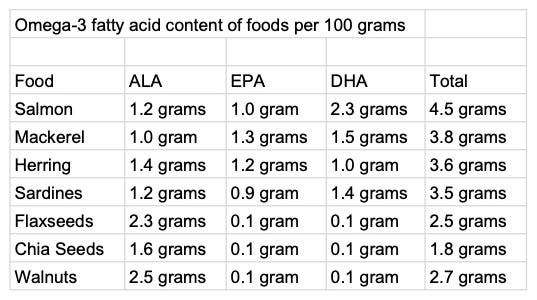UPDATED: March 30, 2025
Welcome to the Healthy Living Is Good Medicine Newsletter, a free publication covering a wide variety of health-related topics, with timely original articles intended to help people lead healthier and more fulfilling lives.
As the evidence continues to accumulate in favor of a heavily plant-based diet for optimal health, people may be tempted to become strict vegetarians. That could be an example of too much of a good thing becoming a bad thing if certain nutritional essentials are missing from the diet.
The Problem with a Strict Vegetarian Diet
The exclusion of animal-based foods from one’s diet may require taking dietary supplements to prevent nutritional deficiencies, and that can be a problem. Because the supplement industry lacks regulatory oversight, impure and mislabeled supplements can present a health risk. Generally, people are much better off when they are able to adequately meet their nutritional needs through their diet alone. For some people, plant-based diets may not healthy at all:
Wisely-chosen, animal-based food sources can make up for the protein, vitamin, mineral, and fatty acid shortcomings of a strict vegetarian diet. It’s no surprise that evolution has shaped humans into natural-born omnivores. An added bonus for those who want to lose weight is that the digestion of proteins burns calories. Here’s the protein content of some common foods:
Greek yogurt, plain, non-fat, 1 cup: 27 grams
Chicken breast, 3 ounces: 26 grams
Tuna, canned, 3 ounces: 22 grams
Salmon filet, 3 ounces: 21 grams
Tofu, 3 ounces: 13 grams
Lentils, cooked, 1 cup: 18 grams
Black or pinto beans, cooked, 1 cup: 15 grams
Spelt, cooked, 1 cup: 11 grams
Quinoa, cooked, 1 cup: 8 grams
Oats, cooked, 1 cup: 6 grams
Brown rice, long-grain, cooked, 1 cup: 5.5 grams
Corn, cooked, 1 cup: 5 grams
Peanuts, 1 ounce: 7 grams
Almonds, 1 ounce: 6 grams
Cashews, 1 ounce: 5 grams
Walnuts or hazelnuts, 1 ounce: 4 grams
Pecans, 1 ounce: 3 grams
Egg, large: 6 grams
Since the typical U.S adult needs to consume at least 50 g of dietary protein per day, it can be quite challenging to get enough protein from plant-based sources alone. Who is going to eat three cups of cooked pinto beans a day? Even if they did get all their essential amino acids from plants, they will still come up short on their omega-3 polyunsaturated fatty acids.
Omega-3 Fatty Acids
First, a short biochemistry lesson: Eicosapentaenoic acid (EPA) and docosahexaenoic acid (DHA) are the two most important types of omega-3 polyunsaturated fatty acids (n-3 PUFAs) essential for human health. It is recommended that most healthy adults have a combined daily intake of 250-500 mg of EPA and DHA. Pregnant and breast-feeding women will need at least 300 mg of combined EPA and DHA daily.
Although walnuts, flax seeds, and chia seeds contain the shorter-chain alpha-linolenic acid (ALA), it is inefficiently converted by liver enzymes into EPA and DHA. That can pose a problem for people who don't eat fish. Studies have found that plant-based omega-3s can be harder to metabolize, especially when one’s diet includes vegetable oils containing high amounts of omega-6 fatty acids. Being low in omega-6s is one of the reasons why extra-virgin olive oil, and avocado oil for high-heat cooking, are preferable.
On a gram-for-gram basis, the best sources of EPA and DHA are fatty cold-water fishes, such as wild Alaska pink salmon, sardines, herring, mackerel, and some species of tuna. Among the commercially available tuna species, the Atlantic albacore tuna (Thunnus alalunga) typically provides the most omega-3 fatty acids per gram, but its high mercury content is a limitation. A 100 gram serving of canned albacore contains around 1.3 grams of omega-3s, primarily DHA and EPA. Skipjack tuna (Katsuwonus pelamis) is the main species found in canned chunk light tuna. It contains less mercury, is a more sustainable choice, and provides about 0.9 grams of omega-3s per 100 gram serving.
For people who like fishing, the American shad (Alosa sapidissima), native to the East Coast and successfully introduced to the West Coast, is an excellent source of EPA and DHA. Wild rainbow trout (Oncorhynchus mykiss), and the ocean-going steelhead subspecies, also have a high omega-3 content.
Despite the popularity of fish oil supplements as a source of omega-3s, health claims on their labels are not supported by scientific evidence, nor are they regulated by the FDA. Unless the supplement’s contents have been USP or NSF laboratory tested, and the product is then verified or certified for its purity and potency, you won't really know what you are getting.
Omega-3s and Health
There are no standardized tests that can be used to diagnose an omega-3 deficiency. Skin irritation and dryness, hair thinning and loss, and dry eyes, have been linked to low omega-3 intake, although causal relationships have not been established. Severe omega-3 deficiency has been associated with fatigue, poor memory, joint pain, weakness, mood swings, depression, and other mental health problems.
An overview of prospective studies and meta-analyses suggests that DHA intake is associated with a reduction in cognitive decline and may delay the onset of dementia. An analysis of the longitudinal relationships of dietary intake of omega-3s and all-cause dementia or cognitive decline suggests a positive benefit. DHA appears to prevent damage to the vascular system of people with type 2 diabetes.
Despite being marketed for “heart health,” recent research suggests that regularly taking fish oil supplements by people who have had no prior cardiovascular problems may actually raise the relative risk of developing atrial fibrillation (AF) by 13 percent, and increase stroke risk by 5 percent. A 2022 review found indications of a dose-related increased risk of AF with omega-3 fatty acid supplementation. Patients who are taking high doses of omega-3s should be informed of those risks.
Over-the-counter (OTC) fish oil supplements are not usually recommended by medical doctors, and there are no recommendations for their use in the guidelines published by professional medical societies, yet about one in five American adults over the age of 60 takes them. Prescription fish oil is available for specific medical indications.
Independent testing has shown that OTC fish oil supplements often lack purity and contain mercury. The FDA doesn’t monitor the supplement industry, nor does it routinely test products to see if they are contaminated with bacteria, heavy metals, pesticides, plastic residues, and other impurities. FDA-regulated, prescription-only fish oil is available for specific medical indications. Otherwise, it’s “buyer beware” when it comes to buying most OTC supplements. Always use reputable sources for supplements.
For people with known cardiovascular disease, there may be some beneficial effects from a fish oil prescription. The same study found that people with existing heart disease had a 15 percent lower risk of progressing from atrial fibrillation (AF) to a heart attack if they regularly took fish oil supplements. It is very important to avoid high doses of fish oil because they have been linked to an increased risk for AF and bleeding. A meta-analysis of seven randomized controlled trials found that omega-3 ethyl esters were associated with an increased risk of AF when the dose was greater than one gram a day.
The larger perspective is that it is difficult to reach firm conclusions about the benefits of omega-3 supplements for healthy adults who have an omnivorous diet. As always, it is better to meet one’s nutritional needs through whole foods rather than supplements. However, a recent study found that people with a genetic predisposition for developing elevated serum levels of cholesterol, LDL, and triglycerides can benefit from omega-3 supplements, along with their lipid-lowering medications.
In summary, taking omega-3 supplements can be risky for healthy people. The atrial fibrillation connection is very important, and often overlooked. Those with coronary artery disease might benefit from a quality-controlled omega-3s prescription. Too many people self-treat with over-the-counter supplements while remaining unaware of the risks.
If you’re thinking about taking supplements, you may want to get your primary care doctor’s medical perspective first. Even better: Meet all your nutritional requirements by eating a healthy, balanced diet. Eat what nature intended for our species, and don’t be bigoted about it. If eating a sardine a day can keep the heebie-jeebies away, do it.
Devout vegans will find it difficult to obtain an adequately concentrated, plant-based DHA plus EPA supplement that has its purity and potency backed by the USP or NSF seal. For anyone considering supplements, it would be wise to discuss your unique situation with your physician beforehand. Unadulterated or minimally processed foods are always your best bet, and eating high-omega-3 fish three times a week is typically advised as part of a healthy eating strategy.
Iron Deficiency
A recent study found that nearly one in three Americans may have an undiagnosed iron deficiency. Doctors don’t usually screen adults for iron deficiency unless they have anemia. In addition to being necessary for the production of hemoglobin in red blood cells, iron has an impact on skeletal and cardiac muscle, and its deficiency has been associated with restless leg syndrome, decreased physical capacity, impaired neurological and cognitive functions, and increased all-cause mortality. Pre-menopausal and pregnant women are especially at risk.
The most important dietary sources of heme iron (ie. from blood) are lean meat and seafood. Dietary sources of non-heme iron include nuts, beans, and some vegetables. However, heme iron has a much greater bioavailability than non-heme iron. The bioavailability of non-heme iron is enhanced by heme iron and vitamin C, and reduced by the phytates found in grains and beans, and polyphenols found in dark green, leafy vegetables, such as spinach. Calcium reduces the bioavailability of both heme and non-heme iron.
For an in-depth review of the benefits conferred by an omnivorous diet, see:
For more about diets and healthy aging, see:
― ― ―
These Posts can be updated at any time. Please check back here again to find the most up-to-date information.
You can find many more articles about Healthy Living in my Post Archive.
Please be sure to share my Website Link with others via your social media accounts. You can help your friends and followers become healthier by suggesting that they subscribe to my totally free Newsletter.








